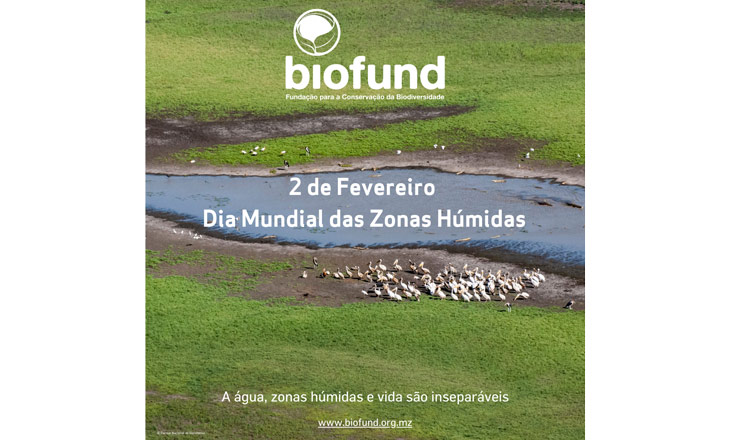Decreed in 1971, in the Iranian city of Ramsar, 2 February marks the international celebration of the adoption of the Convention on Wetlands, or simply the Ramsar Convention. This is a convention that seeks to promote international cooperation and encourage actions for rational and sustainable management of the wetlands for the maintenance of the life of humanity and of biodiversity.
Published at 02/02/2021
WORLD WETLANDS DAY: Water, wetlands and life are inseparable

The Wetlands are ecosystems that are transitional between aquatic and terrestrial environments. They include swamp areas, natural or artificial waters, either permanent or temporary, with static or running fresh, brackish or salt water, including marine areas which, at low tide, are no more than six metres deep.
Wetlands are among the most productive areas in the world. They sustain humanity and nature, by providing a series of irreplaceable ecosystem services at global level, such as drinking water, bio-filtration of water, and a habitat for various migratory species. They maintain the balance between various ecosystems and contribute towards attenuating the effects of climate change.
Every year 200 new species of fish are discovered in wetlands, and more than a billion people depend directly on this ecosystem for their survival.
However, despite the importance of the wetlands, population growth, coastal urbanisation, pollution, and irresponsible consumption of water are placing them under irreversible pressure.
Today, each of us is called upon to contribute to the protection of the wetlands, by taking decisions with an environmental awareness, such as increasing efficiency in the use of water, not destroying wetlands, restoring damaged areas, and integrating this ecosystem into territorial planning and in the management of natural resources.
Mozambique signed the Ramsar Convention on Wetlands in 2004 (https://www.ramsar.org/wetland/mozambique). The Convention seeks to guarantee implementation of actions to protect and conserve these aquatic ecosystems, out of recognition of the role they play in ecological balance. Mozambique currently has two Ramsar proclaimed areas, which cover a total area of 4,534,872 hectares, namely the Marromeu Complex (which includes the Delta of the Zambezi River, where BIOFUND is supporting the conservation of biodiversity) and Lake Niassa and its coastal area.

